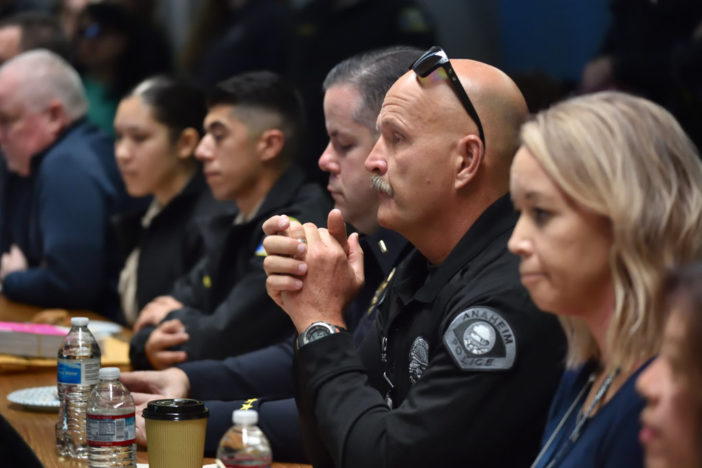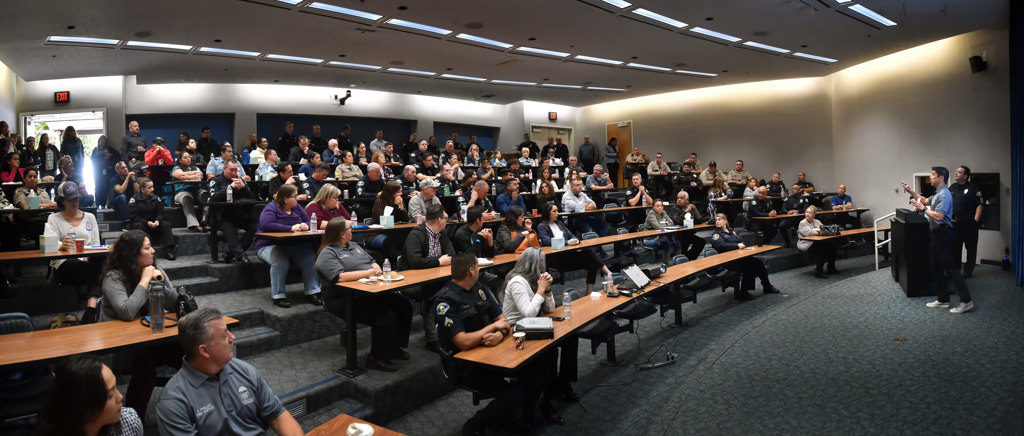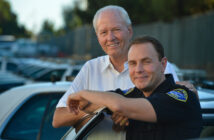It was standing-room only in the Anaheim PD auditorium as the sergeant stepped up to the microphone.
For the next 90 minutes, he and another speaker would discuss in heart-breaking detail a topic of increased importance in law enforcement and society at large that nevertheless remains partially in the shadows:
Suicide.
Speaking to his colleagues and mental heath professionals in the room, the veteran APD sergeant, who asked that his name and picture not be used for this story for privacy reasons, recounted the worst day of his life, Nov. 27, 2018.
Early that morning, the sergeant, who was attending a training seminar on the East Coast, was awoken by a phone call from his wife.
You need to come home immediately, she told him.
When he pressed, she told him what had happened: Their son, two days shy of his 15th birthday, had taken his own life.
In the days and weeks and months that have followed, the sergeant has experienced a minefield of emotions filled with anger, confusion, profound sadness, and a lot of guilt.
“I never know which emotion is going to hit me,” he said.
A few days before the one-year anniversary of his son’s death, the sergeant decided to tell his story for a couple of reasons.
First, he wanted to thank his family at the APD, as well as professionals at The Counseling Team International who have worked with him, his wife, and teenage daughter in the wake of their devastating loss, for all their kindness and support.
Secondly, the sergeant, who began his career at the APD 25 years ago as a cadet, wanted to stress the importance of talking more openly about suicide and suicide prevention.
“Sometimes you have no way of knowing what someone is truly feeling, so I knew I had to do something,” he said.
During the sergeant’s presentation, a picture of his beaming son was displayed on a large screen. Many in the audience, who included most of the APD’s 25-member Peer Support Team, teared up during his talk.
“I had to find a purpose,” the sergeant said. “Our schools are not doing enough in talking about mental health and suicide. We’re not doing enough in our homes. Our government is not doing enough to provide funding for research.
“Suicide is a serious problem, and research tells us it’s increasing. Something is happening in our society and to our youth. We have to try and figure out why.
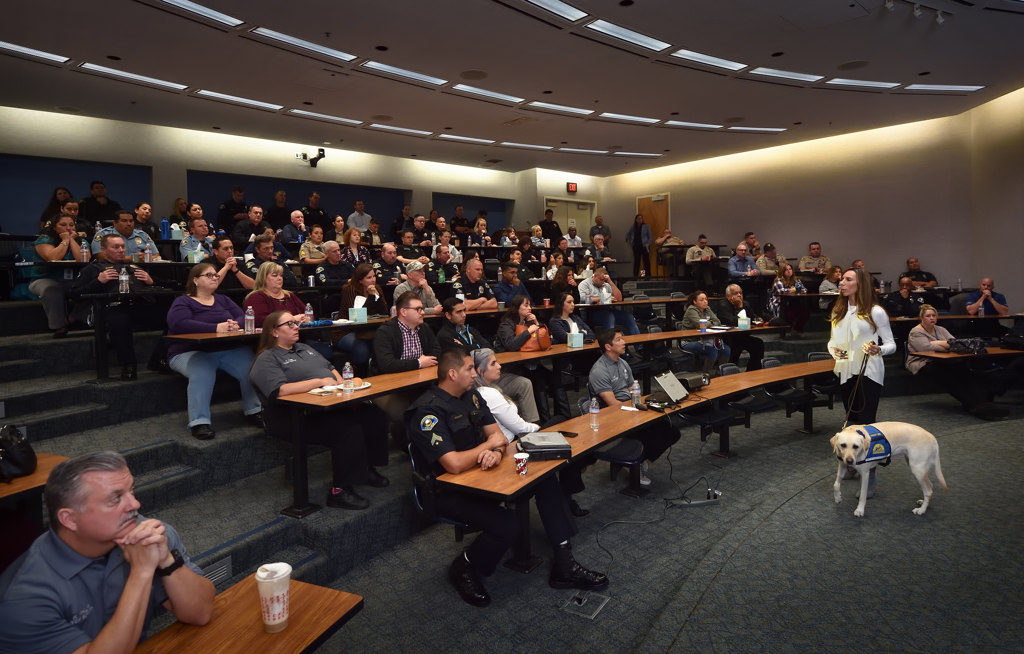
Tiffany Atalla of Best Solutions Therapy with her therapy dog, Bay, during a lecture on suicide prevention.
Steven Georges/Behind the Badge
“I’m committed to bringing awareness. If one person can be saved because one of you goes home and talks to your child (then it’s all worth it). Then at least in my heart, (my son’s) life will not be in vain.”
The sergeant said there were no warning signs his son would take his life. He described his home as stable, and said his son was a straight-A student who appeared to be happy and who always seemed to take an interest in making others happy.
Only after his son’s suicide was the sergeant able to discern some clues that led to his son’s terrible decision.
A break-up with a girlfriend, a class in which he was struggling.
These and other issues came to light after the sergeant was able to access his son’s phone and social media accounts.
The sergeant’s son only had confided in his ex-girlfriend about his struggles. The ones who were closest to him – his mother and father, and his sister, with whom he was very close – were kept in the dark.
“(My son) was able to hide his pain from the three people that knew and loved him the most,” the sergeant said.
The sergeant’s counselor said it’s very typical for someone to hide depression from those to whom they are closest. They are scared. They don’t want to get in trouble. They don’t want to be ostracized. They don’t want to be embarrassed. They don’t want to be burden on their family.
Michele Nellesen, a detention facility assistant for the Anaheim PD, was one of the many in the audience who were moved by the sergeant’s story.
“I have children, and my oldest recently came out (as gay),” Nellesen said. “As a parent, I ask myself: Am I too hard on my children? Am I too lenient? My biggest fear is that (my child) would feel he is not accepted. … You never know what’s going through your kids’ minds. You do your best. There is no handbook.”
Nellesen has worked at the APD for 22 years.
“We used to never talk about this,” she said. “It’s all about awareness.”
The Counseling Team International (1-800-222-9691, thecounselingteam.com) provided printed resources for those who attended the sergeant’s presentation.
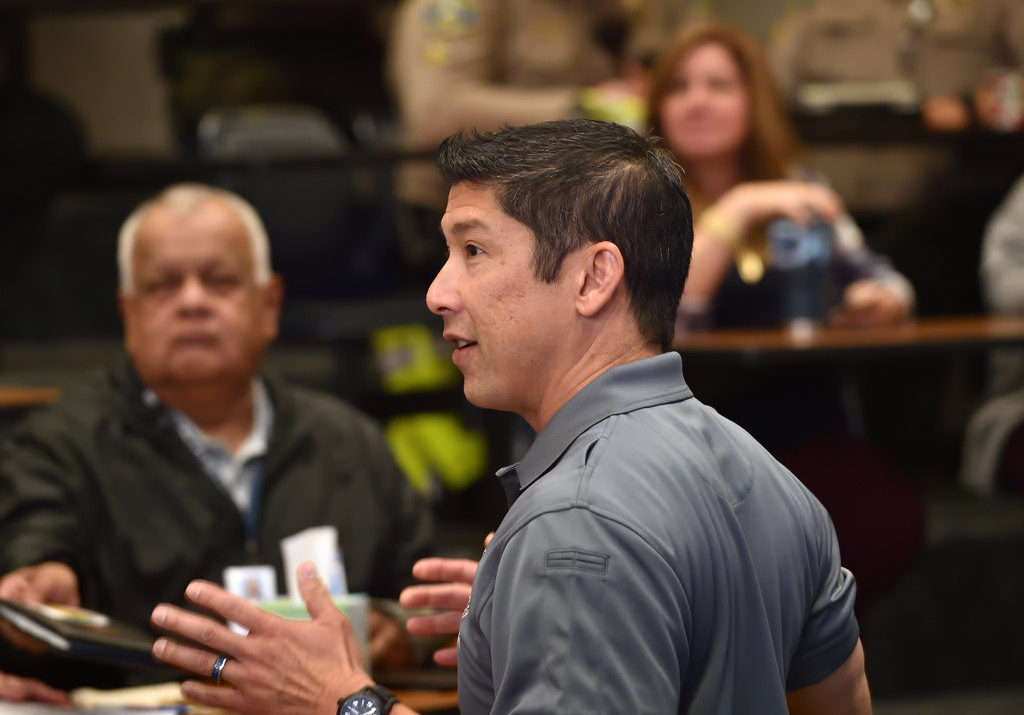
Anaheim PD Sgt. and Peer Support Team leader Darrin Lee talks to those attend a lecture on suicide prevention at the Anaheim PD.
Steven Georges/Behind the Badge
One handout, “Suicide Prevention and Intervention for Law Enforcement Personnel,” detailed common myths about suicide, primary reasons, and high-risk factors.
Tiffany Atalla, a marriage a family therapist with Best Solutions Therapy, spoke about the importance of recognizing someone experiencing suicidal thoughts – and the importance of being a good listener and being non-judgmental.
“I can never repay what everyone has done for us, and I am truly honored that you are all here to listen to me,” the sergeant said. “Some of you may ask, ‘Why is he doing this?’ But I stand before you as raw and real as I can be.
“I’ve asked myself many times if I should speak publicly at all about our experience and why I would do that. The only other times I’ve spoken in a public setting was at (my son’s) funeral and when (I) addressed the (APD) peer support team.
“Many people have approached my wife and I and have asked us for advice, things to look out for in their own kids. They’re scared because if it could happen to us, it could happen to anybody.”
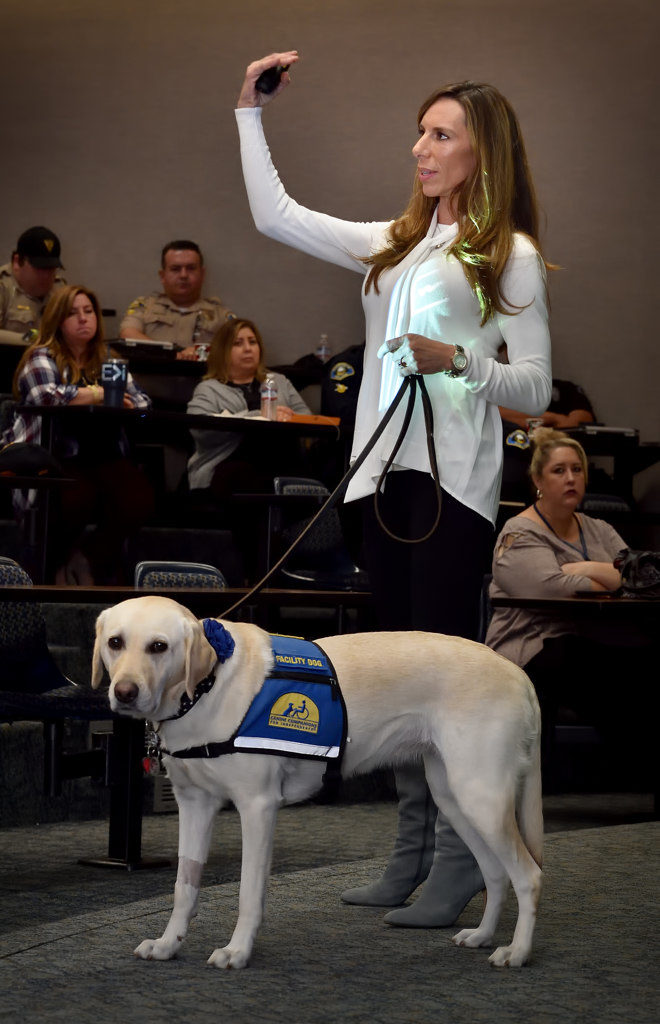
Tiffany Atalla of Best Solutions Therapy with her therapy dog, Bay, during a lecture on suicide prevention.
Steven Georges/Behind the Badge
The sergeant recalled that his son seemed fine in the days and weeks leading up to his suicide.
“How’s it going?” the sergeant would ask him
“All good, Dad. All good.”
The sergeant said it’s important to discern “when a teenager is being a teenager and when it’s something more serious.”
He urged the audience: “Please talk to your kids, your loved ones. And maybe you don’t take, ‘It’s all good, dad,’ at face value.”
 Behind the Badge
Behind the Badge
